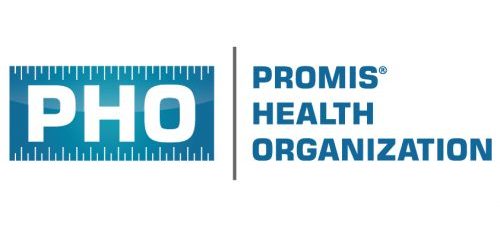New Publications
Sawano M, Bhattacharjee B, Caraballo C, et al. Nirmatrelvir-ritonavir versus placebo-ritonavir in individuals with long COVID in the USA (PAX LC): a double-blind, randomised, placebo-controlled, phase 2, decentralised trial.Lancet Infect Dis. 2025 Apr 3:S1473-3099(25)00073-8. doi: 10.1016/S1473-3099(25)00073-8. Epub ahead of print. PMID: 40188838.
This decentralized pharmacological trial examined the efficacy and safety of nirmatrelvir–ritonavir versus placebo–ritonavir for individuals with long Covid. The PROMIS-29 v2.1 Physical Health Summary Score was used as the primary efficacy endpoint (difference in baseline to day 28 change between the 2 groups). Secondary efficacy endpoints included the PROMIS-29 v2.1 Mental Health Summary Score, PROMIS-Preference Score, and PROMIS v2.0 Cognitive Function Short Form 6a along with other non-PROMIS standardized PROMs plus long Covid symptom reporting not captured in existing PROMs. The authors found no significant between-group differences in any efficacy endpoint. However, this study more broadly highlights the feasibility of decentralized trials, including the role of PROMs in such designs.
---------------
Odom JN, Lee K, Harrell ER, et al. Associations between smartphone GPS data and changes in psychological health and burden outcomes among family caregivers and patients with advanced cancer: an exploratory longitudinal cohort study. BMC Cancer. 2025 Apr 4;25(1):614. doi: 10.1186/s12885-025-14009-y. PMID: 40186196; PMCID: PMC11971861.
In this exploratory study, the authors looked at the correlations over 24 weeks between passively collected smartphone sensor data (continuous GPS data; biweekly summaries) and PROM scores collected every 6 weeks in patients with advanced cancer and family caregivers. All participants completed the Hospital Anxiety and Depression Scale and the global mental health subscale of PROMIS Global-10. Caregivers also completed the Montgomery-Borgatta Caregiver Burden Scale. Both individual and dyadic analyses were completed. Some associations between sensor data and self-reported mental health were observed for both patients and caregivers. There were also some associations specifically between patient (or combined patient and caregiver) sensor data and caregiver burden. The findings highlight the potential for incorporating remote digital phenotyping to support those living with cancer.
----------------
Phan TT, Rhodes ET, Arasteh K, et al. Association Between Obesity-Related Health Factors and Patient-Reported Outcomes: Linking Patient-Reported Outcomes to PEDSnet Electronic Health Record Data. Child Obes. 2025 Apr 22. doi: 10.1089/chi.2024.0380. Epub ahead of print. PMID: 40261725.
The authors linked patient-reported outcome survey data with longitudinal electronic health record data (standardized across institutions within a network using a common data model) to describe associations between clinical and patient-reported variables among youth with obesity. The selected PROMIS measures included the Pediatric Scale v1.0–Global Health 7, Parent-Proxy Scale v1.0–Global Health 7, Pediatric Short Form v1.0-Family Relationships 4a, and Parent-Proxy Short Form v1.0-Family Relationships 4a as well as PROMIS items measuring fatigue and stress. Data were linked by the network coordinating center. Both self-report and parent-proxy global health were below scores in the reference population. Factors such as increasing BMI percentile trajectory, number of comorbidities, and obesity-related medications were associated with poorer health-related quality of life. The study highlights how linking multiple sources of data can provide important insights.
---------------
Ackerman IN, Soh SE, Hallstrom BR, et al. A systematic review of crosswalks for converting patient-reported outcome measure scores in hip, knee, and shoulder replacement surgery. Acta Orthop. 2024;95:512-523. Published 2024 Sep 13. doi:10.2340/17453674.2024.41384
This systematic review compared PROM (including PROMIS) crosswalk studies used in joint replacement. Crosswalks allow scores from one PROM to be converted to another PROM score supporting the alignment and aggregation of PROM data sets for comparison and benchmarking without further collection. The review included 17 studies, identifying 35 different crosswalks for joint-specific, disease-specific, and generic PROMs. The findings highlight substantial variation in crosswalk development, validation, and performance assessment suggesting there is opportunity to standardize crosswalk methodology and reporting in the future.
---------------
Mizels J, Connelly J, Martin B, et al. How Do Functional Comorbidities Affect PROMIS-PF Scores Following Lumbar Fusion Surgery?. Spine (Phila Pa 1976). 2025;50(6):383-388. doi:10.1097/BRS.0000000000005153
This retrospective study was completed comparing PROMIS outcomes between a group with functional co-morbidities to a group without functional co-morbidities all who underwent spinal fusion surgery. Functional co-morbidity included the presence of congestive heart failure, chronic obstructive pulmonary disease, cerebrovascular disease, or paraplegia. At 24 months both groups demonstrated statistically significant improvements on PROMIS- Physical Function (PF), but the functional co-morbidity group had a lower overall change score (1.3 points) with 19.3% achieving a minimally clinically important difference (5-point improvement) compared to the non-functional co-morbidity group at 80.9%. These findings highlight patients with functional co-morbidities do not recover at the same rate as those without functional co-morbidity. ---------------
MARS Group. Relationships Between PROMIS and Legacy Patient-Reported Outcome Measure (PROM) Scores in the MARS Cohort at 10-Year Follow-up. J Bone Joint Surg Am. Published online February 18, 2025. doi:10.2106/JBJS.24.00196
A cohort of participants (n=204) from the Multicenter ACL Revision Study (MARS) were evaluated 10 years after ACL reconstruction. Participants were given the PROMIS Physical Function v2.0 (PF), Physical Mobility v2.0 (PM), and Pain Interference v1.1 (PI) computer adaptive test banks and four knee-specific legacy measures, the international Knee Documentation Committee (IKDC), The Marx Activity Rating Scale (Marx), The Western Ontario and McMaster Universities Osteoarthritis Index (WOMAC), and The Knee injury and Osteoarthritis Outcome Score (KOOS) to compare performance. Analysis was completed determining PROMIS PF had a normal distribution with no floor or ceiling effects, PROMIS PM and PROMIS PI had split distributions with PROMIS PM demonstrating a ceiling effect and PROMIS PI a floor effect. Correlations between PROMIS and legacy measures were all in the expected direction and Spearman corre.
lation coefficients absolute values ranged between 0.35 to 0.80, determined to be ‘fair’ to ‘moderately’ correlated depending on comparison. Predictive modeling demonstrated an R2 of 0.21 to 0.64, demonstrating PROMIS and legacy measures were significantly associated but unable to precisely determine legacy scores. The authors conclude knee-specific legacy measures should not be eliminated as they produce unique and specific knee-related information

